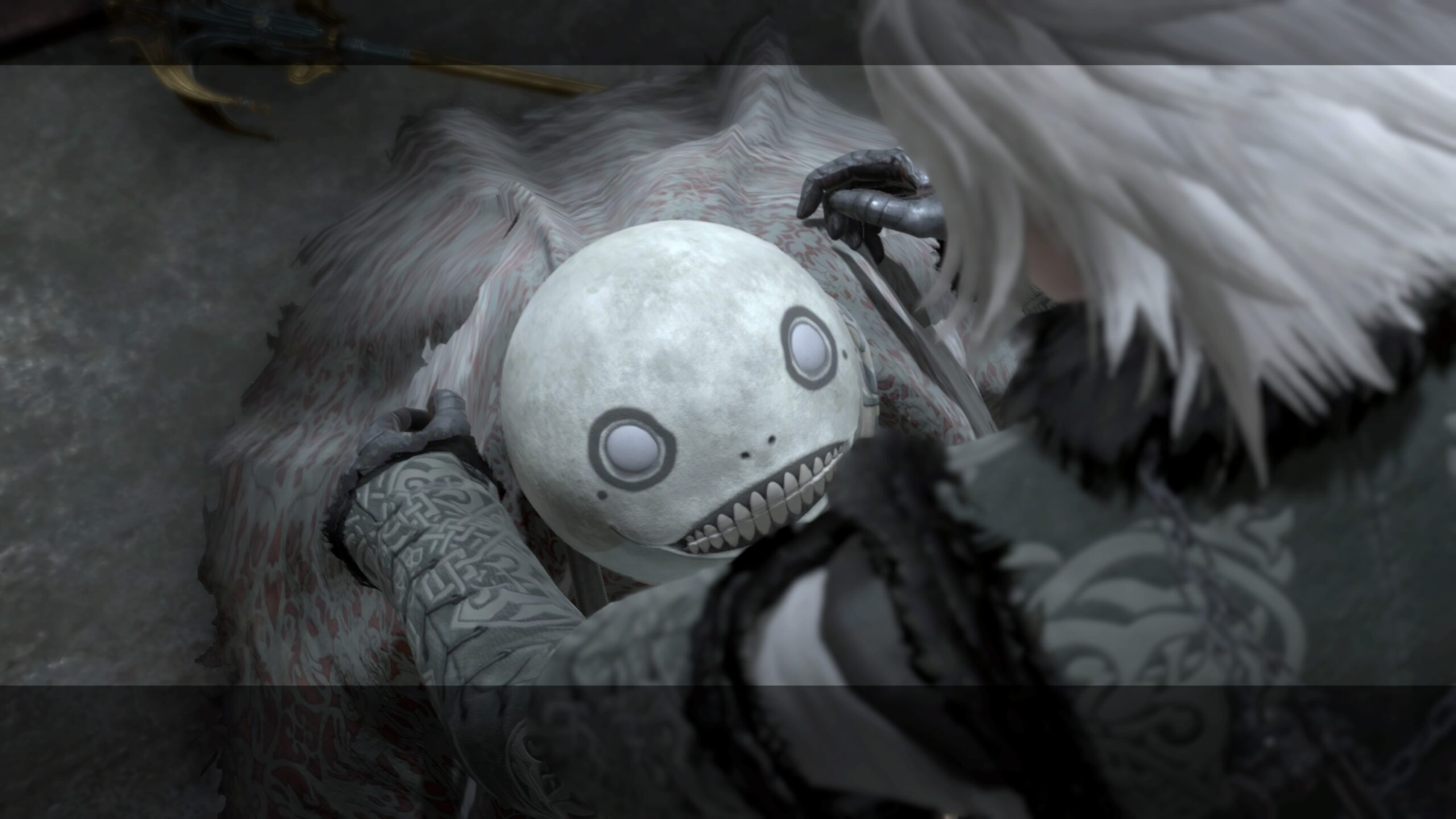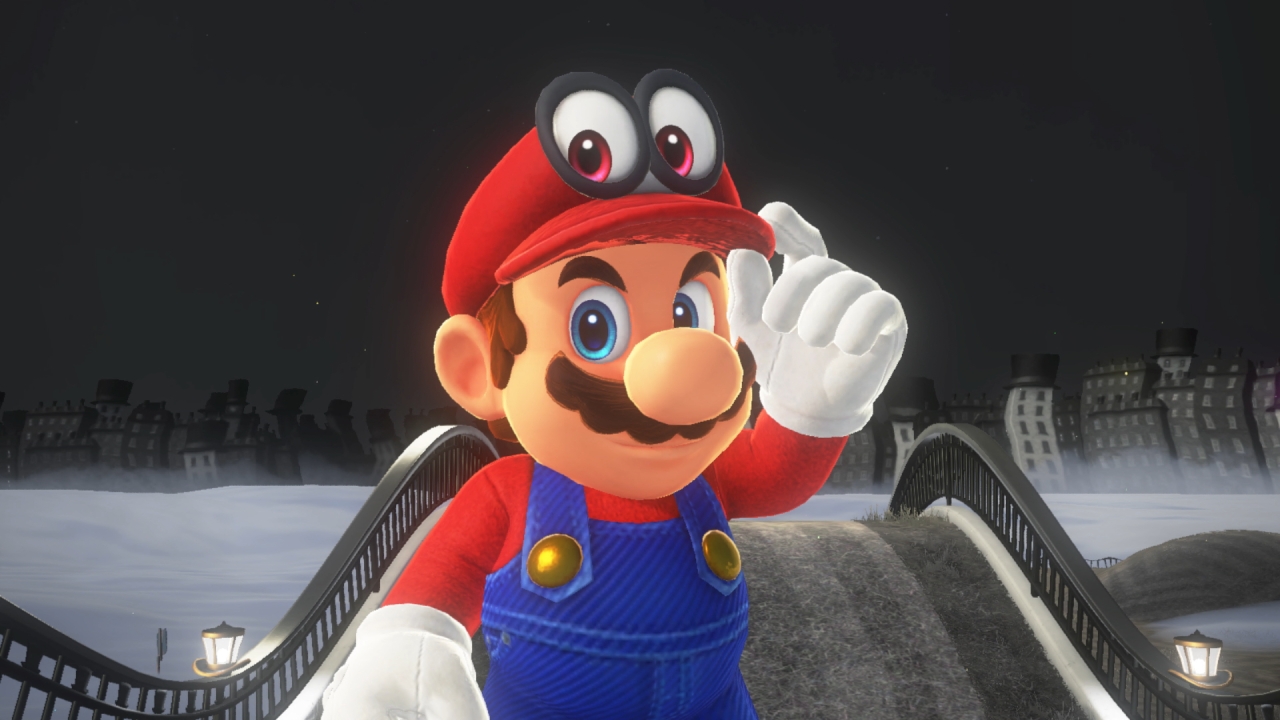Julian Fellowes Interview: Downton Abbey
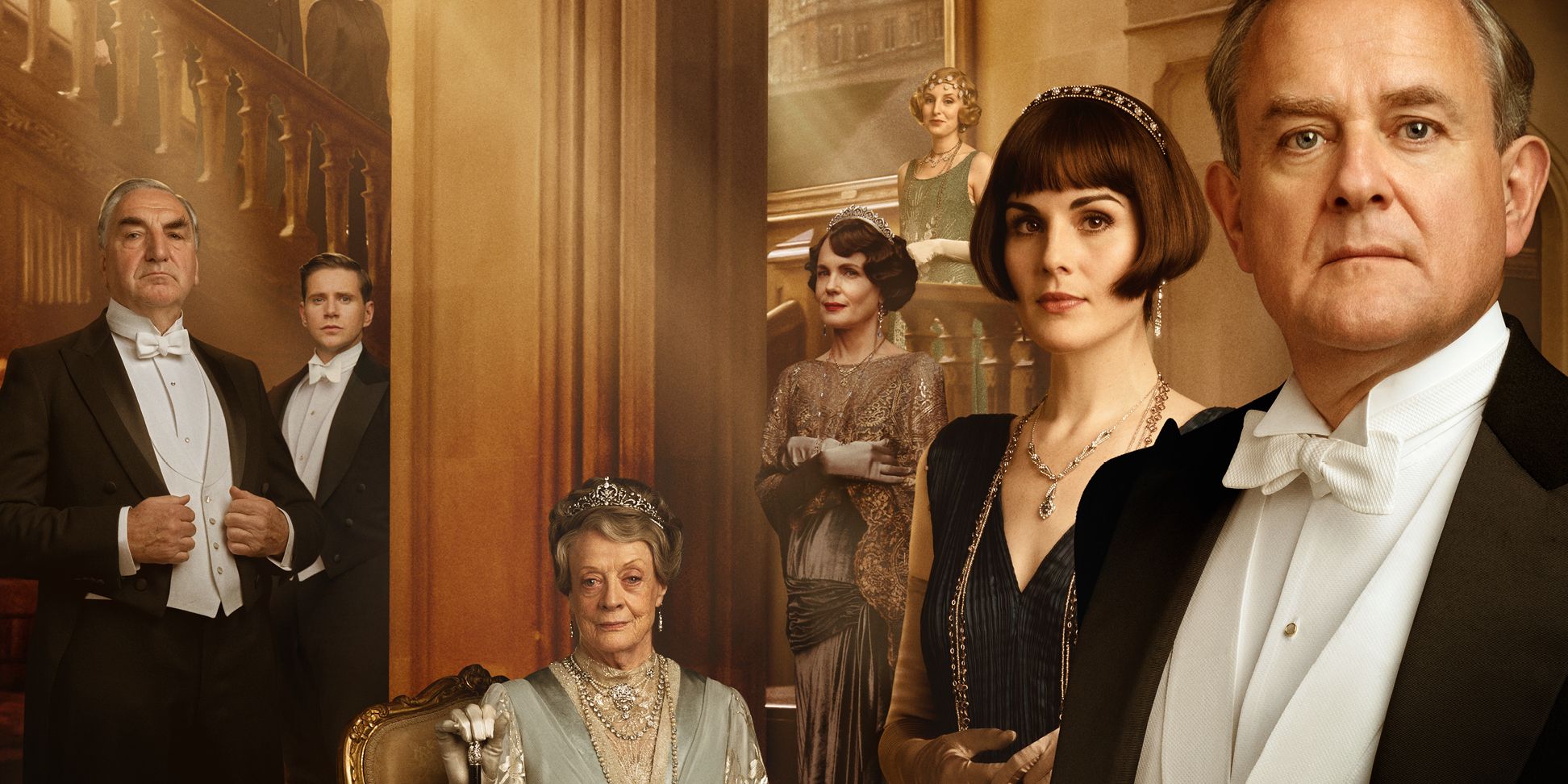
Downton Abbey wouldn’t be the worldwide phenomenon that it is without the brilliant mind of Julian Fellowes behind the wheel. The acclaimed writer and producer helmed the show for five seasons on ITV before bringing the story to life on the big screen last year, delighting audiences all over again. At a recent event celebrating the home release of the movie, Fellowes shared why he thinks the drama captured so many hearts, which character reminds him of his father, and what lies in store for Maggie Smith’s iconic Dowager Countess.
What do you think makes Downton Abbey so beloved? Is it an antidote to what’s going on in the world?
Julian Fellowes: Well, it’s not the first time I’ve been asked, If I had a pat answer, I’d give it to you. But the truth is, I don’t fully understand it. Because I think there are other wonderful series that haven’t become so universally successful.
But I think it has something to do with the fact that all the characters are given equal dramatic weight, so that Daisy is just as important to character as Edith. If it had been made in the 50s, all the family would have been gracious and charming and all the servants would have been funny. If it had been made in the 90s, all the servants would have been oppressed and the family would have been vile and mendacious. But we haven’t done either of those.
We just see it as a group of people obviously born to different circumstances in life but, for the most part, trying their best. Trying to get through it as well as they can. And that is true of Cora as it is of the cook, Mrs. Patmore. I suspect that has something to do with it. And also, most of them – not quite all, but most of them – are pretty decent people.
There is a lot of unpleasantness on television today, and in films, and you’re sitting there for two hours watching people who you would rather run a mile than have dinner with. I think that may have something to do with it. Not that I’m against any kind of film or show – good luck to them all. If they can find an audience, that’s great. But I think that we are warmer than some shows, really.
What kind of changes did you make to bring the show to the big screen? Were you conscious of trying to fill the theater by making sweeping shots or anything?
Julian Fellowes: Well, I think that’s partly a question for the cinematographer, who was extremely talented. And I thought he got more out of the house, for instance, than we’d ever been able to on television. He really made the house seem dazzling.
I suppose things like the train sequence at the beginning, which was written in the script, was partly because I wanted to have a slight echo of the first ever episode. And also, because I knew we could do it on film in a way that we would struggle to do it on television. And I deliberately chose the royal visit as a subject that, with its balls and parades and banquets, was going to give lots of screen-filling material.
But everyone plays a part in that. The costume designer, the set designer; they’re all working to make it a movie, and to make it a movie experience. Whether or not they succeeded, of course, is up to the audience rather than me.
The books by Lady Carnarvon contain some similarities between what happens in those and what happens on Downton Abbey. Were you inspired by anything that happens in them?
Julian Fellowes: You’re going to print this, and that’ll be a short life. I haven’t actually read any of Lady Carnarvon’s books, but I’m sure they’re marvelous and at the top of my reading list.
It was quite nice when we had parallels. In fact, Highclere was not a convalescent home was we had it. It was actually turned into a hospital during the First World War by a rather marvelous châtelaine, Almina, who was the illegitimate daughter of one of the Rothschilds. Although she was illegitimate, he adored her and she was his heir.
She spent a lot – not to say, all of his money – on various ventures. One of them was turning the house into a hospital for the soldiers during the war, which I thought was terrific. But we had to have it as a convalescent home because we didn’t want the family to move out, which they would have had to do if it had been a hospital. And I knew several houses that had been convalescent homes, so that kind of thing was really more generic.
How did people living in those houses deal with the war? Sometimes they did nothing. They weren’t requisitioned in the first war. In the second they were, and then it wasn’t your choice. You just had to get out, and the troops arrived or whatever it was, but that didn’t happen in the first of all. You made a decision, do we want to make a contribution or not? But anyway, I’m very pleased that Lady Carnarvon has taken such an interest in the show. And indeed that people have taken such an interest in Highclere, which is a marvelous house and deserves to be seen.
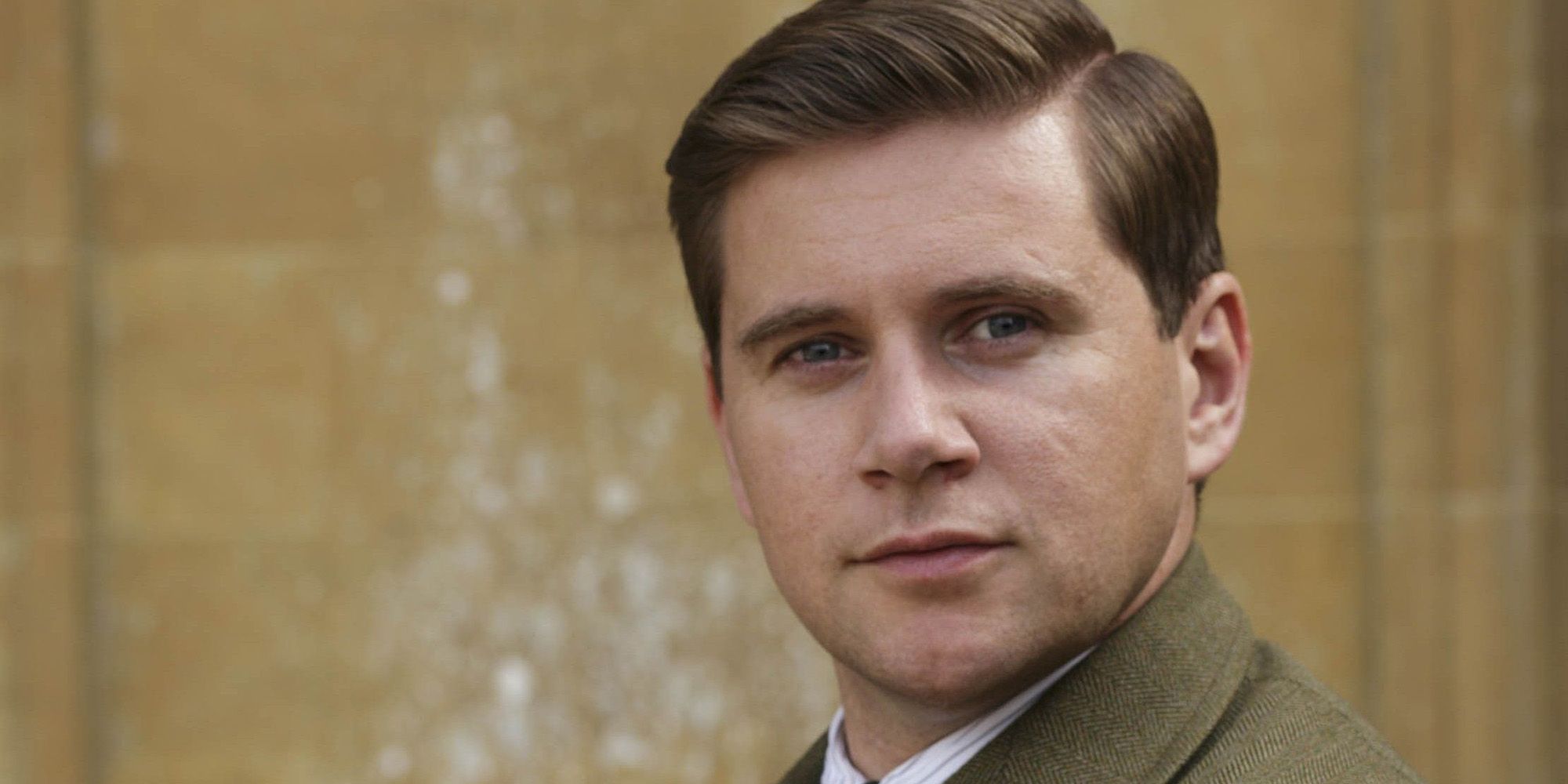
Tom finally moves on from Sybil’s death in this film and finds love anew. But how did you decide who lives and who dies in the first place?
Julian Fellowes: Well, the only character we had that we had decided must die was in fact Thomas the footman. And that was only because we didn’t believe it possible that a house and household the size of Downton would go through the First World War and absolutely no one would die. I mean, I come from a perfectly ordinary family. My grandfather died in the trenches, my great uncle died of wounds, several of their first cousins died, and even one of the women first cousins was torpedoed by the Germans on her way back from Africa and drowned.
If that can happen in an ordinary family, is it likely that a household of that size would escape completely? So, we drew lots literally of the different male characters who’d gone to the war. And Thomas was the one with the short straw. But the others only died because the actors left.
We had a three[-year contract]. In America, you can get a five-year contract and sometimes even a seven-year contract at the beginning of the series. We can’t. The longest we get is three years. And so we knew that at the end of three years, we had to persuade them to stay. And actually, with Jessica Brown Finley who played Sybil, it was easier because she decided she was only going to do three years from the start. That was it. So I did research, and I came up with Eclampsia and all of that stuff. And we killed her in five, so they had three episodes to get over it.
It was different with Matthew, because he only decided to leave more or less just before the read through. We’d written the five episodes, they’d been cast and had directors, and suddenly he said, „I’m going too.“ He’d been offered a play on Broadway, he’d been offered a movie – I completely understood. I didn’t want to sound as if I didn’t understand, I did understand, but it didn’t solve the problem.
When I knew he was never coming back, because of course I said to him, „Can’t you just come back? We’ll have a happy Christmas, the baby’s in the cradle, then you come back and we’ll kill you in episode one?“ No. So, the only way I could avoid doing memorials twice and funerals twice with Sybil was to kill him in the last shot of the show. And unfortunately, in England, that was on Christmas night. So, that was ITV’s contribution to the nation’s Happy Christmas, for which I paid a high price in abusive letters. But, you know, you get through these things.
And then we had a six month gap, so it worked for us in the end. Because, actually, if I had killed him in episode one, we’d have to have Mary in sobs for the rest of the series. Whereas, by having a six month gap, we could have her starting to come out of it, which really played better. So it all worked out.
Speaking of deaths, were you worried about the Dowager in whatever comes up next? The sequels are coming; she’s not very well…
Julian Fellowes: She’s not very well, but she’s not dead. There’s no indication that she’s dying imminently, so we just have to wait and see what happens. We also have to see whether Maggie [Smith] wishes to survive her present situation or not.
She’s been a bit ambivalent sometimes. Is that just her way?
Julian Fellowes: It’s always been her way. She never gives the game away until it suits her.
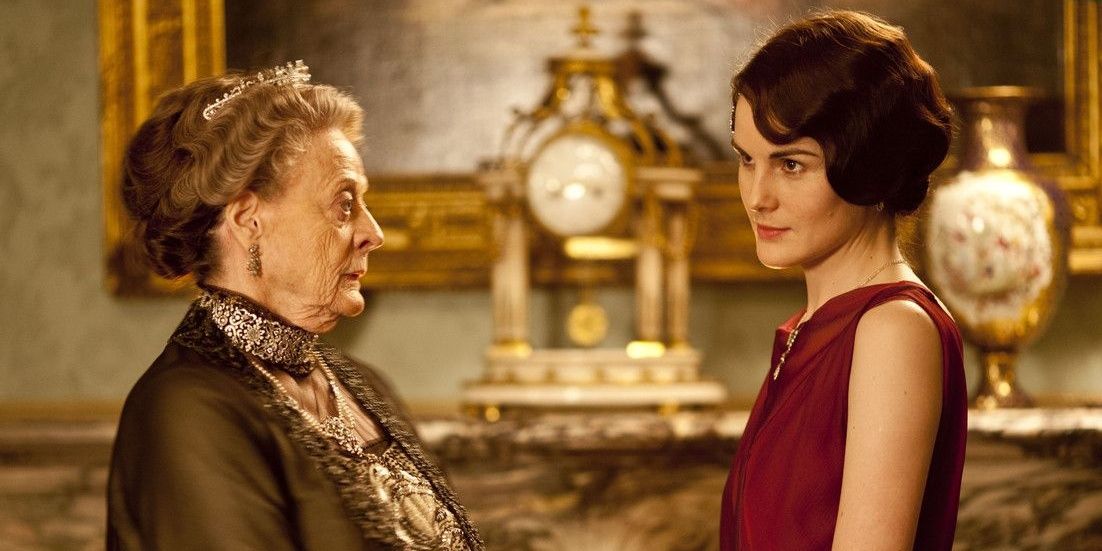
Everybody loves the interactions between Maggie and Penelope. Is there a joy in finding those little moments and exchanges?
Julian Fellowes: Well, it’s always a relief when you find enough of them to get through the episode, or whatever it is. I don’t really know where any of it comes from, to be honest. You sit there staring at a blank screen, thinking, „Oh God.“ And then a few weeks later, there’s a script.
I don’t really understand the process, but mercifully, I have been allowed to complete as many scripts as I have completed with some wisecracks for Maggie. Who, of course, is fun to write for because she plays them so well. You never have to explain to her why they’re funny or any of that stuff. She completely gets it straight away. And she never embellishes; she never adds words.
Some actors add a word, and they don’t realize that if you add a word to a funny line, you’ve changed its rhythm and it can stop it being funny. A lot of it has to do with the music of the line, and you have to land on the punch word in the right rhythm. And she never does that, because she always completely understands what the rhythm is. So, I’ve loved writing for her. I’ve done lots of stuff with her now: Gosford Park and now seven years of Downton.
Is she your favorite?
Julian Fellowes: I don’t really have favorites, to be honest. I’ve invented them all. They’re all my babies. It’s like saying to someone, „Which is your favorite child?“ And they say, „Oh, I don’t have favorites.“ Of course, they slightly do. But they never admit it.
Can you hear yourself in anybody?
Julian Fellowes: I think I hear my father in Robert, rather. They’re quite similar. My father was more intelligent, but they’re quite similar in their moral stand. They’re both decent men doing their best, but neither question the moral universe in which they exist. Robert doesn’t wake up one morning and think, „Why am I the seventh Earl of Grantham?“ He just thinks, „What’s for breakfast?“ And my father was much the same. Not that he was a seven Earl of anything, but he was much the same. Now and then, I hear Robert speak, and I know I’ve been writing in my father’s voice.
If you want to read more Like this articles, you can visit our Social Media category.
if you want to watch movies go to Film.BuradaBiliyorum.Com for Tv Shows Dizi.BuradaBiliyorum.Com, for forums sites go to Forum.BuradaBiliyorum.Com .
